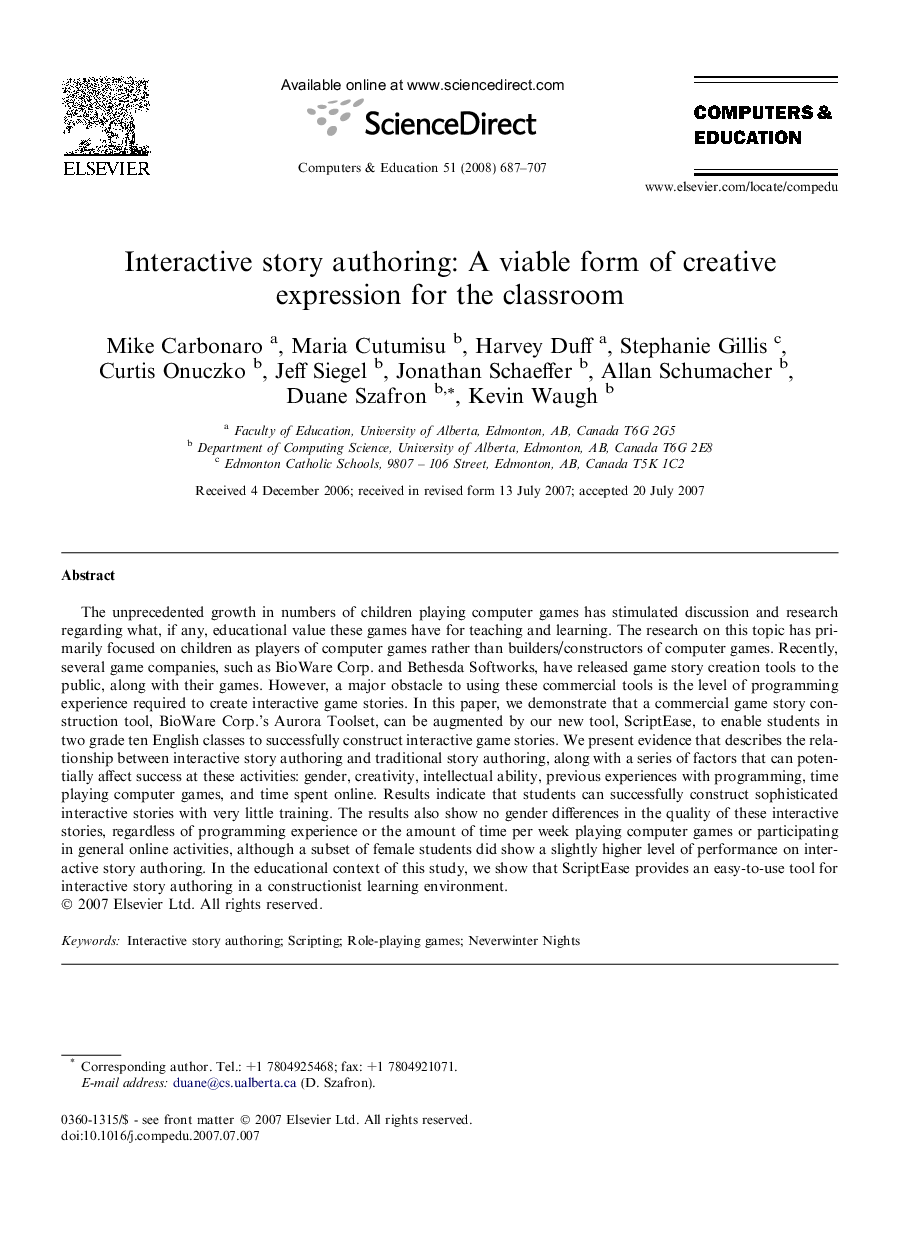| Article ID | Journal | Published Year | Pages | File Type |
|---|---|---|---|---|
| 349761 | Computers & Education | 2008 | 21 Pages |
The unprecedented growth in numbers of children playing computer games has stimulated discussion and research regarding what, if any, educational value these games have for teaching and learning. The research on this topic has primarily focused on children as players of computer games rather than builders/constructors of computer games. Recently, several game companies, such as BioWare Corp. and Bethesda Softworks, have released game story creation tools to the public, along with their games. However, a major obstacle to using these commercial tools is the level of programming experience required to create interactive game stories. In this paper, we demonstrate that a commercial game story construction tool, BioWare Corp.’s Aurora Toolset, can be augmented by our new tool, ScriptEase, to enable students in two grade ten English classes to successfully construct interactive game stories. We present evidence that describes the relationship between interactive story authoring and traditional story authoring, along with a series of factors that can potentially affect success at these activities: gender, creativity, intellectual ability, previous experiences with programming, time playing computer games, and time spent online. Results indicate that students can successfully construct sophisticated interactive stories with very little training. The results also show no gender differences in the quality of these interactive stories, regardless of programming experience or the amount of time per week playing computer games or participating in general online activities, although a subset of female students did show a slightly higher level of performance on interactive story authoring. In the educational context of this study, we show that ScriptEase provides an easy-to-use tool for interactive story authoring in a constructionist learning environment.
